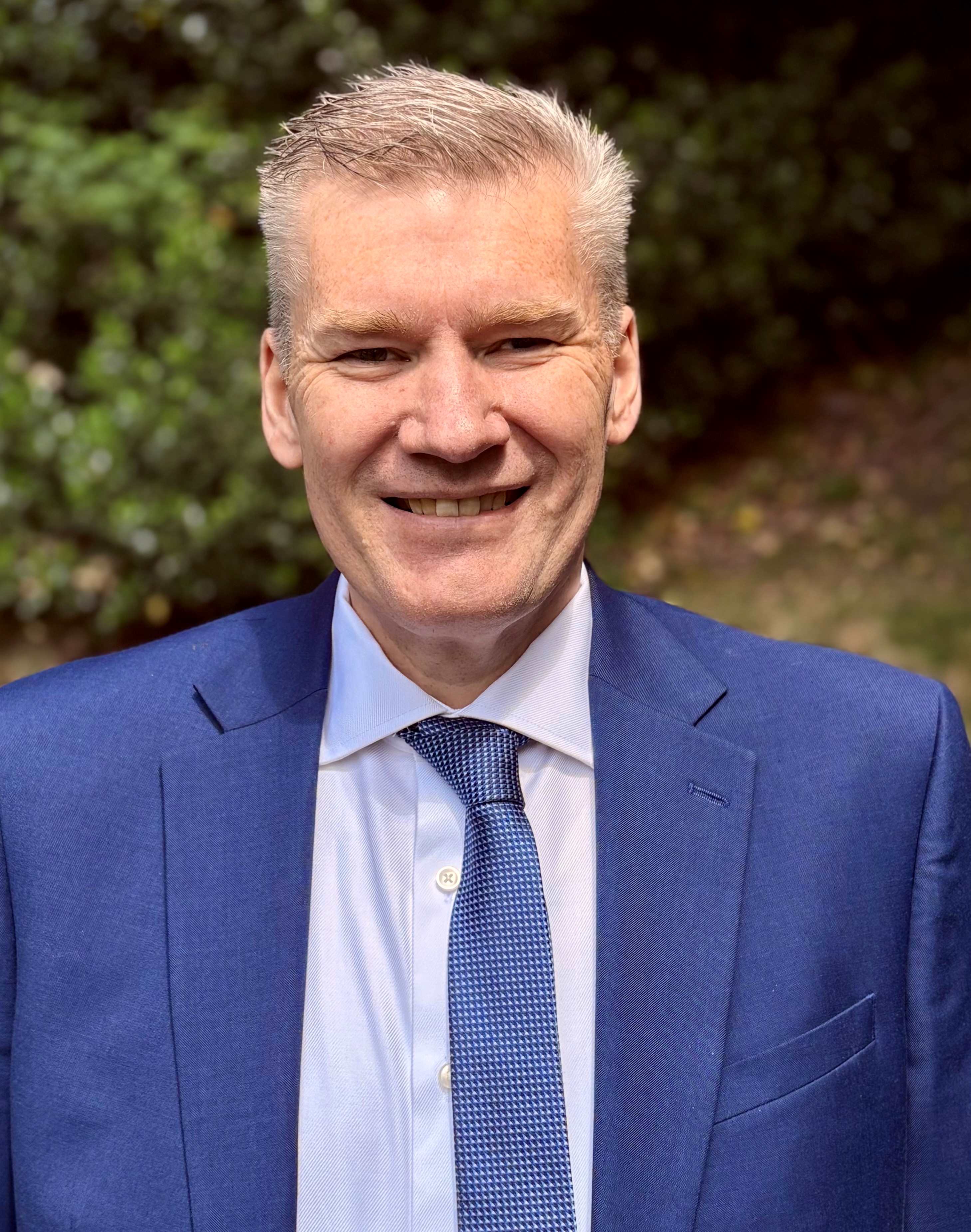Education MA/PGCert/PGDip

You are viewing Course summary
Part-time PG Education Online Information Event
Join our online information event to find out more about our part-time Childhood, Education, and Professional Development (CEPD) postgraduate courses.
Course Summary
Working with children and young people requires a great deal of knowledge and expertise from those in the sector. Our exciting MA in Education aims to support you to develop an in-depth understanding of a wide range of topics related to education.
Our MA in Education is designed to meet the interests of a wide range of participants from schools, nurseries, universities, colleges and local authorities, as well as professionals working with children and young people outside of education – for example in children's services and health and social care. The common factor for all potential participants is the desire to develop their expertise in the field of education and to make a real difference in the lives of the children and young people with whom they work.
The blend of students from different professional backgrounds enables discussion, debate and the sharing of experiences in a supportive and welcoming environment, facilitated by staff who are experts in the field of education.
Drawing on the latest policy, research and practice in education, this course will equip students with skills in critical evaluation and practitioner research, enabling them to make informed contributions to development in policy and practice in a wide range of educational settings.
Students that do not wish to study the full MA programme, can choose to study to a PGDip/PGCert level instead.

CPD Education
What You'll Study
The MA Education is designed to be highly relevant to professional practice, supporting the exploration and development of educational work across a range of settings. This course enables you to research key issues that align with your personal interests and professional context. You can tailor your studies to your specific area of education, whether in Early Childhood, Primary, Secondary, Further, or Higher Education.
MODULES
The full MA Education consists of six modules, typically completed over two years, followed by a Research Project in the third year. Modules run on a two-year rolling cycle, meaning not all modules are available every year.
Modules which may be available within this two-year cycle are:
- ED7201 Contemporary Debates in Education (20 Credits) Optional: In this module, you will examine key debates and emerging issues in education, exploring how policy, theory, and practice shape learning environments.
- ED7204 Promoting Wellbeing & Resilience in Education (20 Credits) Optional: In this module, you will investigate strategies to support wellbeing and resilience in educational settings, enhancing the wellbeing of both learners and educators.
- ED7206 Exploring Curriculum: Concepts, Contexts, and Practice (20 Credits) Optional: In this module, you will analyse curriculum design and implementation, considering historical, cultural, and policy influences on educational frameworks.
- D7207 Education in the Digital Age: Engaging Today's Learners (20 Credits) Optional: In this module, you will explore the impact of digital technologies on teaching and learning, developing innovative approaches to engage modern learners.
- ED7203 Re-imagining Pedagogy & Practice (20 Credits) Optional: In this module, you will critically examine traditional and emerging pedagogical approaches, rethinking educational practice to enhance student outcomes.
- ED7208 Research Methods & Design (20 Credits) Optional: In this module, you will develop essential research skills, exploring qualitative and quantitative methods to conduct robust educational research.
- ED7302 Critical Approaches to Inclusive Practice (20 Credits) Optional: In this module, you will evaluate inclusive education practices, challenging barriers to learning and promoting equality in diverse educational settings.
- E7210 Research Project (60 Credits) Core: In this module, you will undertake an independent research project, applying research skills to investigate a topic relevant to your professional context.
The information listed in this section is an overview of the academic content of the course that will take the form of either core or option modules and should be used as a guide. We review the content of our courses regularly, making changes where necessary to improve your experience and graduate prospects. If during a review process, course content is significantly changed, we will contact you to notify you of these changes if you receive an offer from us.
Teaching methods
The course has been structured to integrate with the work patterns of busy professionals. You can choose to attend the taught sessions at the University of Chester's Exton Park in Chester, or to attend by distance learning where participants can join the classroom-based students virtually from anywhere in the world using Microsoft Teams.
As the majority of participants will be teachers or other educational professionals, the teaching is concentrated into six Saturdays each year, supplemented by six online evening seminars.
Assessment
We use a variety of assessment methods, including digital presentations, essays, projects, and critical reflections, which will enable you to apply the topics studied to your own area of interest and to the age phase or subject area in which you are working.
Entry Requirements
2:2 honours degree
Applicants should normally hold a Bachelor's degree, 2:2 or higher, in an area broadly related to Education. Those with a degree in a different area but with experience of working in educational settings will also be considered.
International students may study this course online from their home countries. Please note, this course is only available to international students who do not require a Visa.
Applicants should normally hold a Bachelor's degree, 2:2 or higher, in an area broadly related to Education.
To help you to interpret these equivalents, please click on your country of residence to see the corresponding entry qualifications, along with information about your local representatives, events, information and contacts.
In addition, applicants should be working in an educational setting, for example as a teacher or other education professional.
English Language Requirements
Applicants whose first language is not English must provide evidence of proficiency. For more information on our English Language requirements, please visit International Entry Requirements.
Using credits towards your MA
If you have completed a PGCE, you can use the 60 credits you have achieved from it towards your MA Education. To transfer your PGCE credits directly to the MA Education, you must have completed the PGCE within the last five years. If your PGCE is older than five years, you may still be able to use the credits but you will have to demonstrate the currency of the knowledge you gained from the PGCE and pay a fee of £220 to have your knowledge assessed.
In addition, if you have completed other Level 7 courses in the area of education, you may be able to use the credits achieved from these courses towards your MA Education, for example, the following Postgraduate Certificates awarded by the University of Chester can all be used as credit towards the MA Education: Postgraduate Certificate in Attachment, Trauma and Mental Health; Postgraduate Certificate in Coaching & Mentoring; Postgraduate Certificate in Leading SEND Provision and Practice; Postgraduate Certificate in Conservation and Sustainability Education; Postgraduate Certificate in Educational Practice in Mathematics. Level 7 courses from other universities may also be accepted. To transfer these credits directly to the MA Education, you must have completed them within the last five years. If your credits are older than five years, you may still be able to use them, but you will have to demonstrate the currency of your knowledge and pay a fee of £220 to have this assessed.
If you have completed a National Professional Qualification (NPQ) then you can use this as credit towards your MA Education, up to a maximum of 60 credits.
|
National Professional Qualification |
Maximum number of masters credits at Level 7 |
What your programme will look like.
|
|
National Professional Qualification for Leading Teacher Development (NPQLTD) |
40 Credits |
Four taught 20-credit modules (from the list of available modules), plus the 60-credit Research Project |
|
National Professional Qualification for Leading Teaching (NPQLT) |
40 Credits |
|
|
National Professional Qualification for Leading Behaviour and Culture (NPQLBC) |
40 Credits |
|
|
National Professional Qualification for Early Years Leadership (NPQEYL) |
40 Credits |
|
|
National Professional Qualification for Leading Literacy (NPQLL) |
40 Credits |
|
|
National Professional Qualification for SENCOs (NPQ for SENCOs) |
60 Credits |
Three taught 20-credit modules (from the list of available modules), plus the 60-credit Research Project
|
|
National Professional Qualification for Senior Leadership (NPQSL) |
60 Credits |
|
|
National Professional Qualification for Headship (NPQH) |
60 Credits |
|
|
National Professional Qualification for Executive Leadership (NPQEL) |
60 Credits |
If you wish to bring more than one NPQ into the MA Education, please contact the Programme Leader to discuss if this will be possible.
To bring your NPQ into the MA Education, you need to engage in a professional discussion with the programme leader for the MA Education. This takes place once you are registered for the course. We cannot do this before your induction.
We will ask you to explain one or both of your projects (depending on the NPQ), what you did, the theories underpinning your project, the impact and the learning you have taken from it.
Fees and Funding
£8,775for the MA course (2025/26)
Guides to the fees for students who wish to commence postgraduate courses are available to view on our Postgraduate Taught Programmes Fees page. Here you will also find information about part-time fees and project/placement year fees.
The 2025/6 full-time equivalent fee for the MA Education is £15,000.
For this part-time course, students will pay in annual instalments over three years, with the first instalment for the 2025/6 academic year being £5,000.
Please note, the following year instalments may be subject to a small inflationary increase.
Students may be eligible for additional scholarships or bursaries which will be stated on their offer letter if applicable.
Your course will involve additional costs not covered by your tuition fees. This may include books, printing, photocopying, educational stationery and related materials, specialist clothing, travel to placements, optional field trips and software. Compulsory field trips are covered by your tuition fees.
The University of Chester supports fair access for students who may need additional support through a range of bursaries and scholarships.
Full details, as well as terms and conditions for all bursaries and scholarships can be found on the Fees and Finance section of our website.
Your Future Career
Job prospects
Students who successfully engage in the MA in Education will become reflective practitioners and critical thinkers who can articulate their views with confidence and conviction.
The course will enhance participants' knowledge and understanding, developing skills that will support career progression in educational settings. Graduates may go on to work with children and young people in a variety of contexts; take up leadership and management roles; take on roles in further and higher education such as lecturing and research; or engage in advisory roles with local authorities or private companies.
Careers service
The University has an award-winning Careers and Employability service which provides a variety of employability-enhancing experiences; through the curriculum, through employer contact, tailored group sessions, individual information, advice and guidance.
Careers and Employability aims to deliver a service which is inclusive, impartial, welcoming, informed and tailored to your personal goals and aspirations, to enable you to develop as an individual and contribute to the business and community in which you will live and work.
We are here to help you plan your future, make the most of your time at University and to enhance your employability. We provide access to part-time jobs, extra-curricular employability-enhancing workshops and offer practical one-to-one help with career planning, including help with CVs, applications and mock interviews. We also deliver group sessions on career planning within each course and we have a wide range of extensive information covering graduate jobs .

















